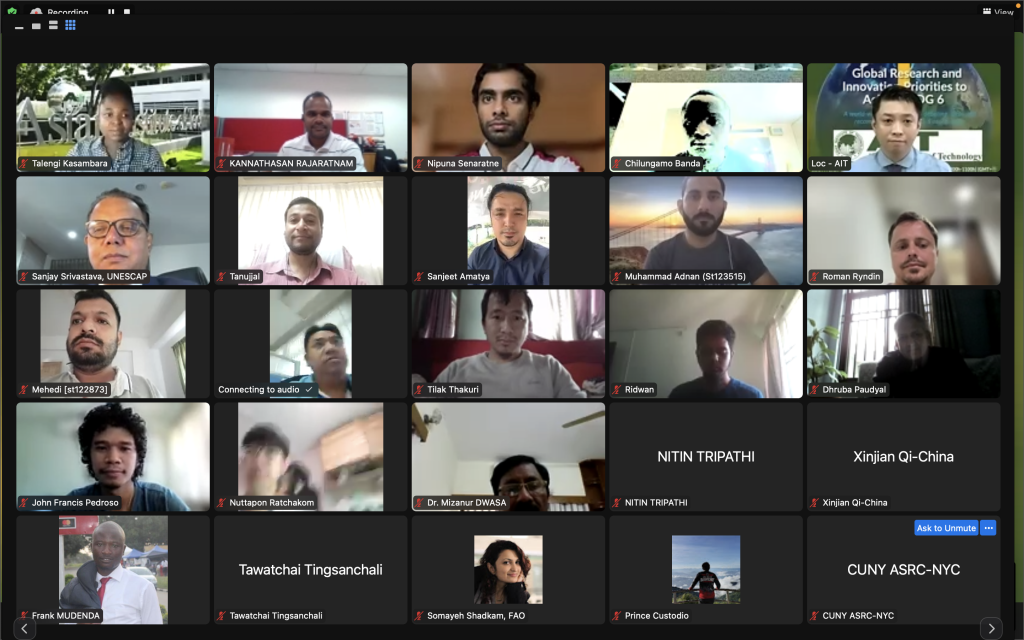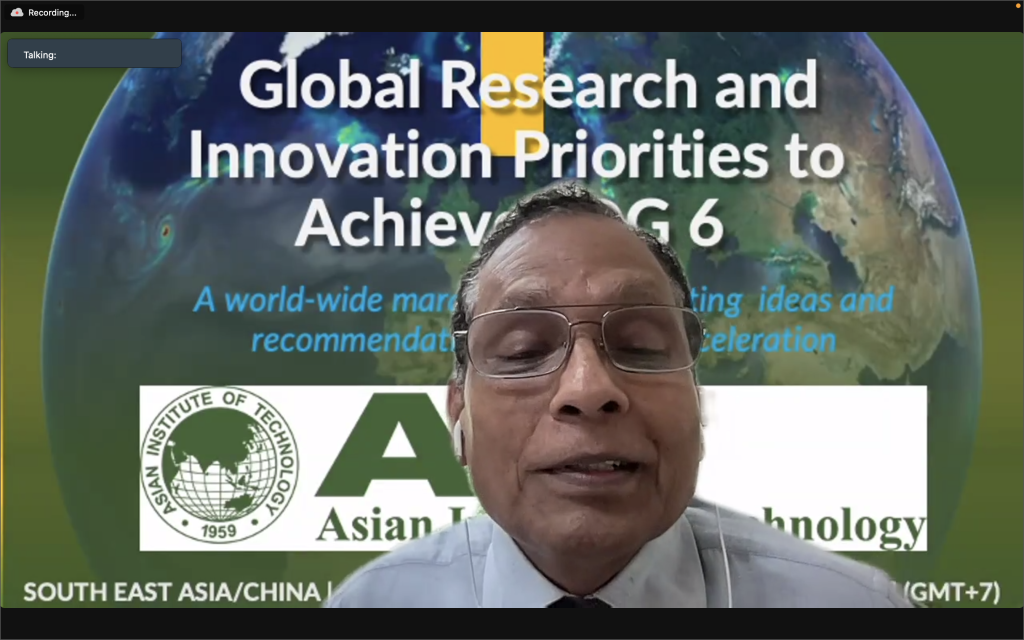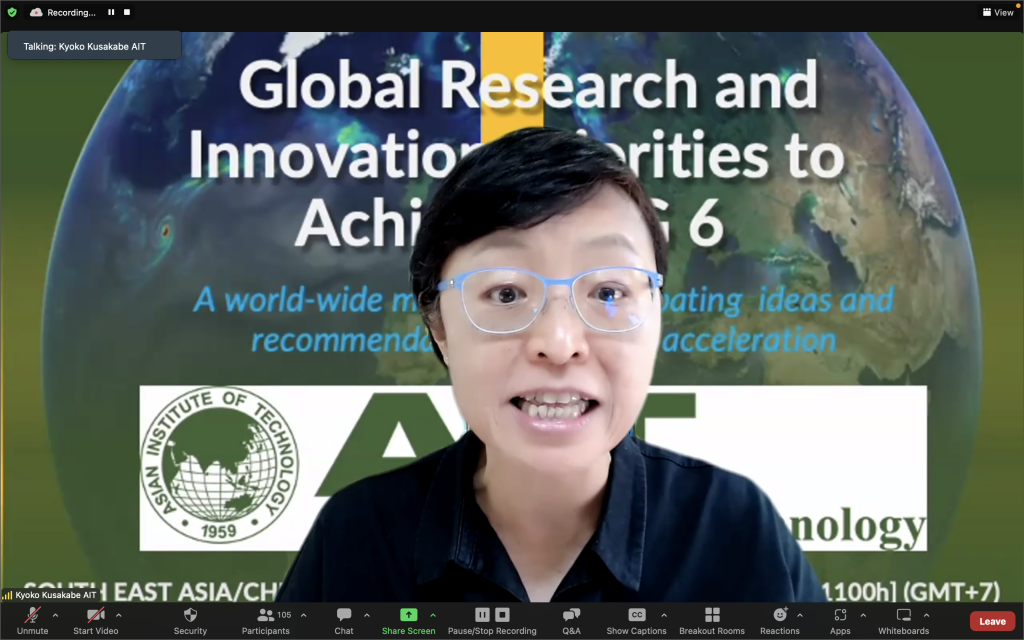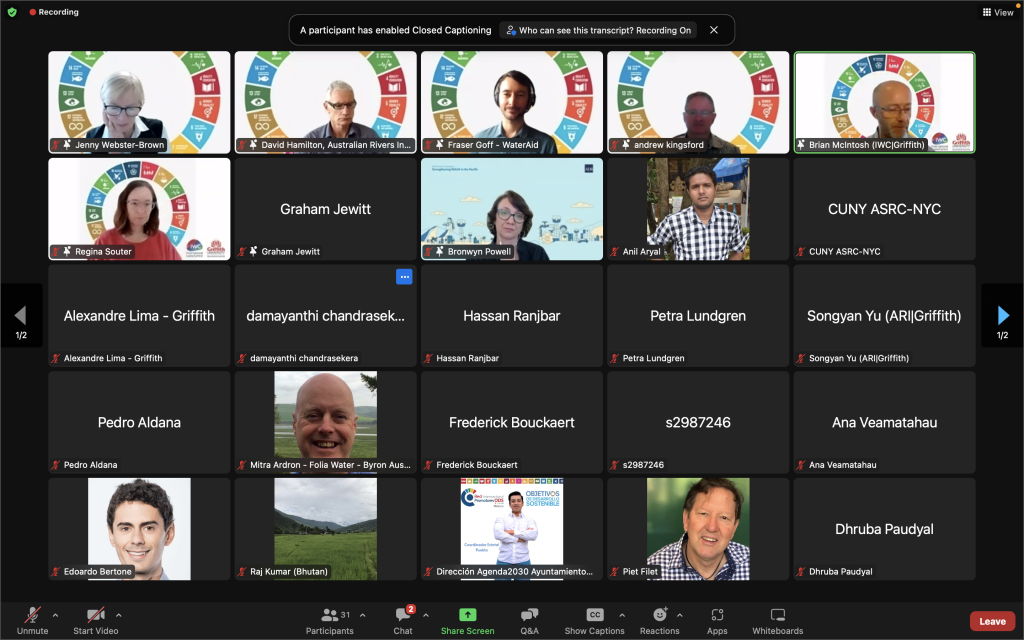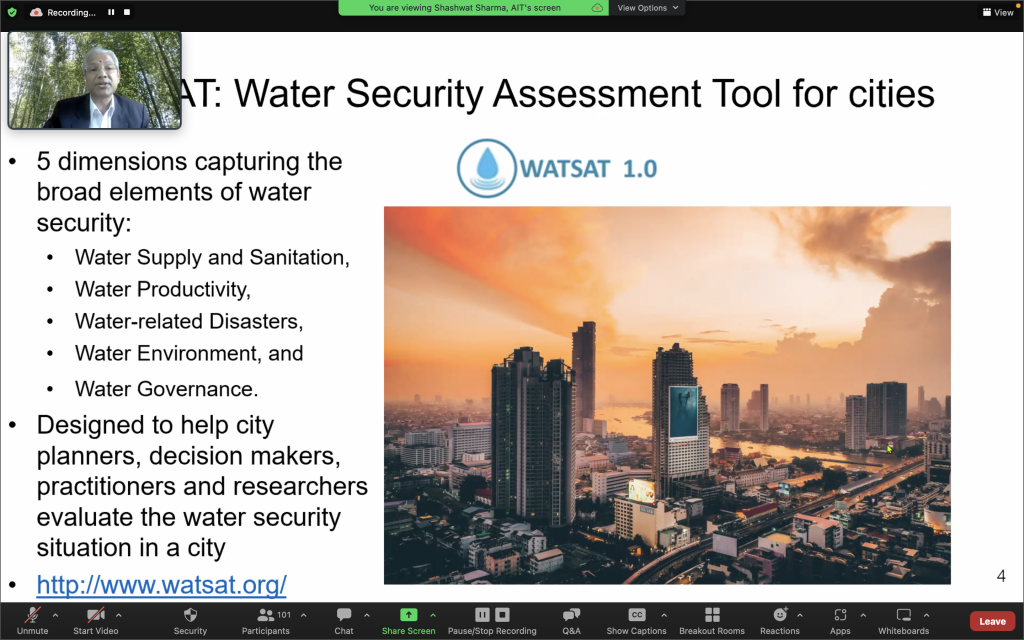By Anil Aryal, Senior Research Specialist, Water Engineering and Management program,
School of Engineering and Technology
March 21, 2023 – On 20-21 March 2023, a global event, “Global Research and Innovation Priorities to Achieve SDG6: A World-Wide Marathon Relay Debating Ideas and Recommendations on SDG-6 acceleration,” was held for the first time in more than 40 years to debate on the challenges of the freshwater crisis and its solutions. Five accelerators were discussed: Finance, Data and Information, Capacity Development, Innovation, and Governance. The event was held in the form of a marathon relay, where participants from around the world shared their ideas and recommendations on how to achieve SDG6. In just 24 hours, the event went all around the world, connecting researchers to debate the research that is needed to accelerate the pillars of the acceleration framework. The event started in New York City on the 20th from 12:00 PM to 2:00 PM Eastern Daylight Time at the CUNY Advanced Science Research Center in west Harlem and ended 24 hours later in New York at the famed Roosevelt House in mid-town Manhattan.
Of 24-hour, the 2-hour time slot for Southeast Asia/China was held on 21 March 2023 from 0900-1100h (Bangkok time, GMT+7) with an objective to deliberate and dialogue on the research, innovation, and actions that are needed to improve the TWO pillars (innovation and capacity development) of the SDG6 accelerator framework. However, the debate was also focused on other accelerators – Finance, Data and Information, and Governance from the Capacity Development and Innovation perspectives. The event also marked the celebration of World Water Day 2023 (WWD 2023) with the theme “Accelerating Change” to solve the water and sanitation crisis.
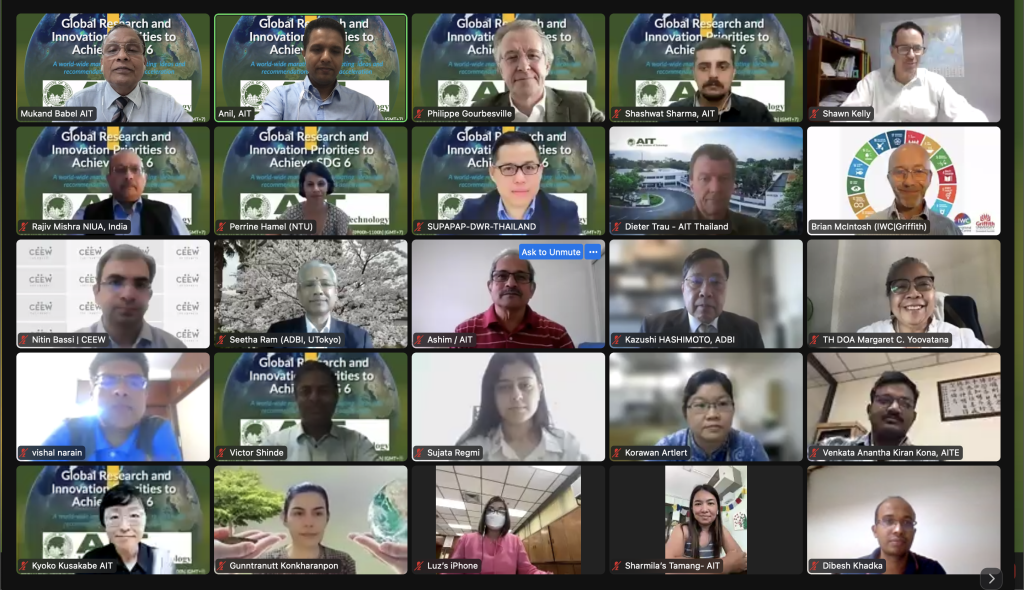
One of the key issues discussed in the innovation session was the reluctance to move away from the “business as usual” scenario, which stymies innovation in the water sector. Participants emphasized that the path to innovation is invariably linked to the willingness to adopt a paradigm shift. Furthermore, it was noted that there is a tendency to address innovation purely through technology, whereas a more holistic approach is needed. Innovation should be looked at holistically – policy, institutional, technological, financial, and social.
The importance of operationalizing the water-energy nexus and other innovative philosophies was also discussed. Participants stressed the need for empirical data to understand nature-based solutions and for communities to have a central role in the innovation story. Monitoring the efficacy of innovation is as important as implementing the innovation. Moreover, it was highlighted that innovation is needed at different spatial scales, from the village to the city, basin, and national levels.
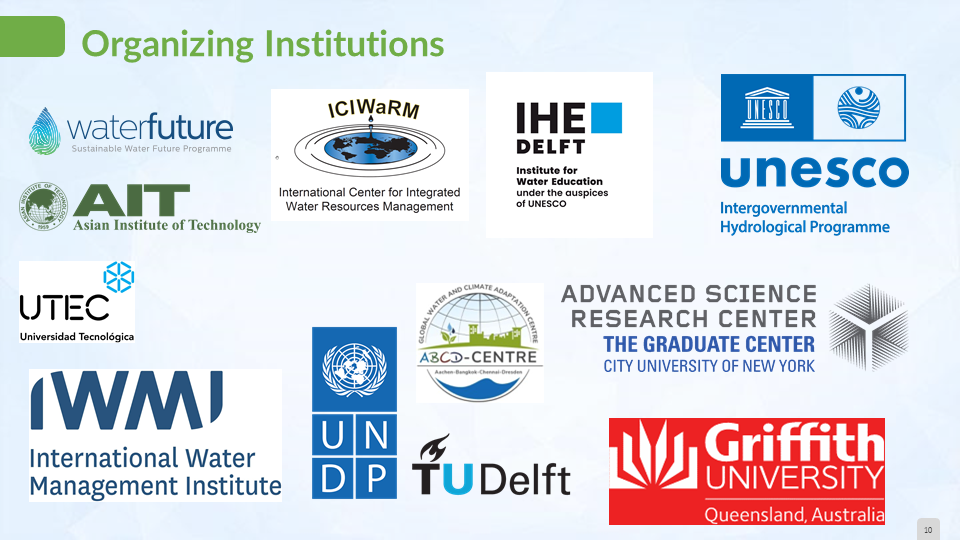
In the capacity development session, one of the main points highlighted was that current capacity-building endeavors are too rigid. Capacity building is much more than training, it requires transforming the mindset of individuals. However, translating improved capacity into improved action on the ground has been a challenge. Capacity building is often a peripheral element in larger programs/initiatives.
The discussion emphasized the need to build capacities in transdisciplinary water management, considering the interdependency of SDGs. It was also highlighted that individual capacity needs should be accounted for in designing programs, taking into consideration the needs of students, technicians, managers, and decision-makers. The dialogue was identified as a powerful form of capacity building.
The discussion also highlighted the actions needed to achieve sustainable water management. A strategic approach to capacity building is needed at the individual, organizational, local, regional, and national levels. Creating a sense of ownership is an important part of capacity building, and citizen science can be used to support decision-making. Capacity building should try to improve the livelihoods of local communities and emphasize local wisdom and knowledge. Water education at the school level is also needed to inculcate long-term inclusive, sustainable water management.
The event was attended by representatives from governments, civil society, academia, and the private sector. The discussions were moderated by experts in the water sector, who provided valuable insights into the challenges and opportunities for innovation in achieving SDG6.
